15 Simple And Effective Home Remedies To Treat Dehydration
Take a deeper look at the causes, symptoms, and ways to beat dehydration.
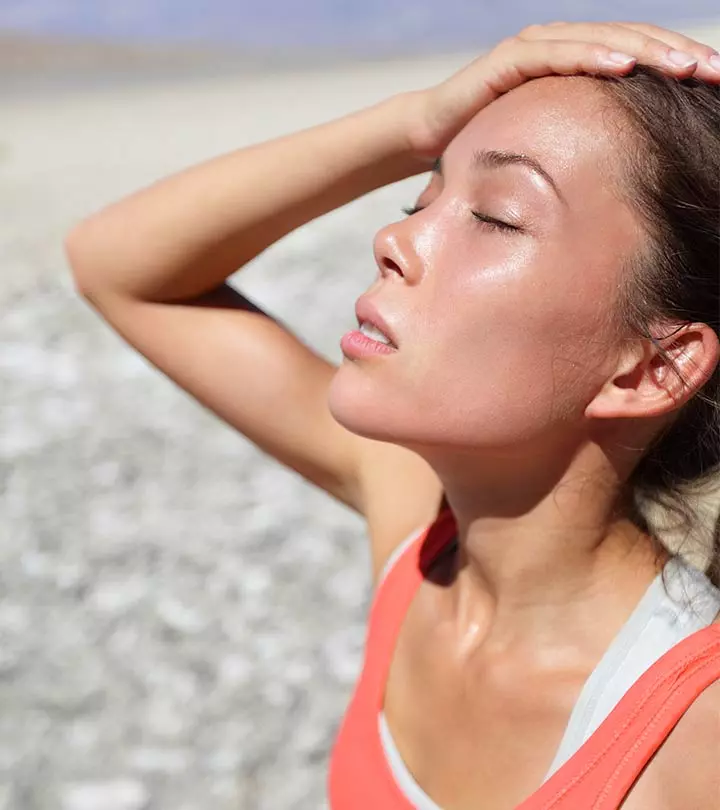
Image: Shutterstock
If you have ever felt parched at night after drinking a bottle of water, then chances are you may be suffering from dehydration. Our body is made up of 70% water, and without it, our bodies cannot function. When your body loses fluid through sweat and urine without replenishing the same amount, it may lead to dehydration (1). Thankfully, there are a few home remedies to treat dehydration in a jiffy. While drinking water takes care of dehydration in most cases, severe cases of dehydration require immediate medical attention. In this article, we take a deeper look at some of the causes and symptoms of dehydration and the treatment options available.
In This Article
What Is Dehydration?
Dehydration occurs when your body is unable to retain fluids and electrolytes. When there is a reduction in the water content of the body, the salt-sugar balance goes haywire, which affects the functioning of the body. There are many factors that could cause fluid loss and eventually lead to dehydration. Let’s take a look at them below.
Key Takeaways
- Restore the mineral balance by drinking electrolyte-rich liquids like coconut water or sports drinks.
- Help the body retain water by eating foods with high water content, like fruits and vegetables.
- Dehydration symptoms can be reduced by increasing the air’s moisture content using a humidifier.
- Prevent further dehydration by avoiding diuretics like alcohol and coffee.
Causes Of Dehydration
Dehydration may be the result of a minor underlying issue, such as a rigorous workout session or decreased water intake. Some other causes of dehydration are as follows:
- Diarrhea Or Vomiting: Both diarrhea and vomiting lead to excessive loss of water from your body, and this can cause dehydration.
- Fever: Running a high fever increases your chance of becoming dehydrated.
- Frequent Urination: Frequent urination following a disease like diabetes or intake of certain diuretic medications also has the potential to result in dehydration.
- Sweating In Excess: If your body loses a lot of fluids after an intense workout, you are at a higher risk of becoming dehydrated.
- Age: Dehydration in elderly people and infants is fairly common and they are at higher risk of becoming dehydrated.
- Chronic Illnesses: Individuals suffering from chronic diseases, such as diabetes and kidney diseases, are also at higher dehydration risk.
- Weather: Extremely cold or hot weather has the potential to cause heat stroke and excessive water loss in your body, leading to dehydration.
- Medications: Some medications, particularly diureticsi Substances that help remove excess water and salt from the body through urine, commonly used to treat high blood pressure condition. and laxativesi Substances that encourage bowel motions and are used to treat constipation. , can increase fluid loss and raise the risk of dehydration. Excessive use may lead to acute dehydration. Therefore, do not take laxatives and diuretics without consulting a doctor.
Let us now look at the common signs and symptoms of dehydration in adults and infants.
Signs And Symptoms Of Dehydration
In Adults
Dehydration can have a mild to severe impact on the affected individuals. Some of the most common signs and symptoms of dehydration in adults include:
- A dry and sticky tongue
- Excessive thirst
- Less frequent urination
- Dizziness
- Urine becomes dark
- Fatigue
- Skin dryness
In Children
The signs and symptoms of dehydration in children may vary from that of adults.
The dehydration effects on children and infants are as follows:
- A dry mouth (2)
- Eyes and cheeks appear sunken
- Increased sleep and lack of energy
- Increased tiredness
- Dry diapers for more than 3 hours
- Absence of tears while crying
Dehydration could be a major concern when it affects children and must be attended to immediately.
Keep reading to know how dehydration can be diagnosed to ensure appropriate treatment and care.
Diagnosis And Test
Dehydration is often diagnosed through physical signs and symptoms. Your doctor may check for low blood pressure, a rapid heart rate, and reduced blood flow to your extremities. To confirm dehydration and determine its severity, the following tests may be done:
- Blood Tests: These tests check electrolyte levels, such as sodium and potassium, and assess kidney function. CBC is also checked, as elevated hemoglobin and hematocrit and reduced plasma volume may indicate dehydration.
- Urinalysis: Examining your urine helps determine if you are dehydrated and how severe it is. This test can also identify signs of a bladder infection.
Let’s now look at some side effects that are often associated with dehydration.
Side Effects Of Dehydration
Dehydration may also cause some unusual side effects like
- Bad breath
- Frequent chills
- Cravings for sweets
- Cramps in the muscles
- Headaches
- Dry skin
SK, an editor and blogger, highlighted the importance of staying well-hydrated to avoid dehydration-related issues. The blogger shared a personal experience from her past when she was dehydrated at an amusement park due to hot weather and prolonged exposure to the sun. It made her realize the significance of proper hydration. She states, “It was a scary yet important experience that helped me realize I needed to be more hydrated. So, (even) now it is still very hard for me to stay on track with that, but I have better habits towards drinking water (i).”
Also, dehydrated skin is one of the more noticeable effects of dehydration, as it can become dry and flaky. Rehydrating your body with water is the easiest way to prevent and manage dehydration. However, water does more than that. It helps regulate several bodily functions. Check out the next section to know more.
What Does Water Do For Your Body?
Water helps your body in the following ways (3):
- It regulates body temperature by sweating and cooling you down.
- It aids in digestion and nutrient absorption.
- It transports nutrients and oxygen to cells.
- It lubricates your joints.
- It flushes out waste and toxins through urine and sweat.
- It improves cognitive function and boosts alertness.
- It reduces exercise-induced oxidative stress.
- It reduces the duration and intensity of headaches.
- It keeps the skin moisturized, which improves overall skin tone.
- It may reduce the risk of constipation and urolithiasisi The formation of stones in the urinary tract, often caused by dehydration, mineral imbalances, or dietary factors. .
Dehydration can turn serious when left untreated and may also lead to a medical emergency.
It is, hence, of utmost importance to treat the condition as soon as you observe its onset. Below are some simple and natural remedies for dehydration treatment.
How To Treat Dehydration Naturally
- Bananas
- Buttermilk
- Barley Water
- Soups
- Coconut Water
- Essential Oils
- Homemade ORS
- Pickle Juice
- Cranberry Juice
- Apple Juice
- Orange Juice
- Lemon Water
- Salt
- Yogurt
- Epsom Salt Bath
Best Home Remedies For Dehydration
1. Bananas
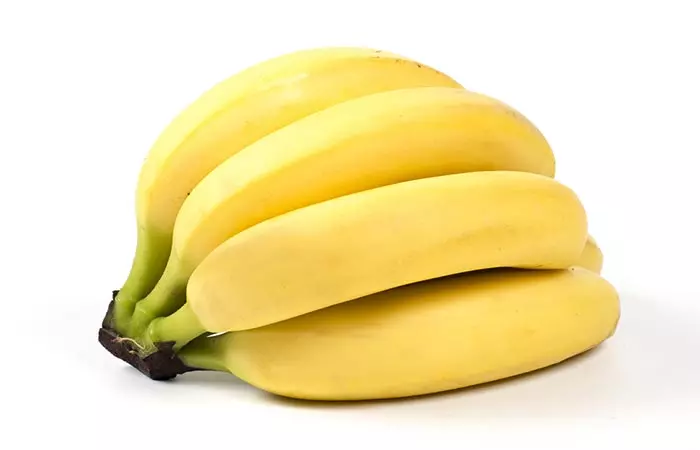
You Will Need
1-2 bananas
What You Have To Do
Have a banana before indulging in any intensive physical activity.
How Often You Should Do This
Do this twice daily.
How This Works
Dehydration causes a deficiency of potassium in your body. Bananas have high potassium content and can help replenish its levels and combat dehydration (4).
Caution
Bananas can be included in your infant’s diet only if he/she is more than 6 months old.
 Quick Tip
Quick Tip2. Buttermilk
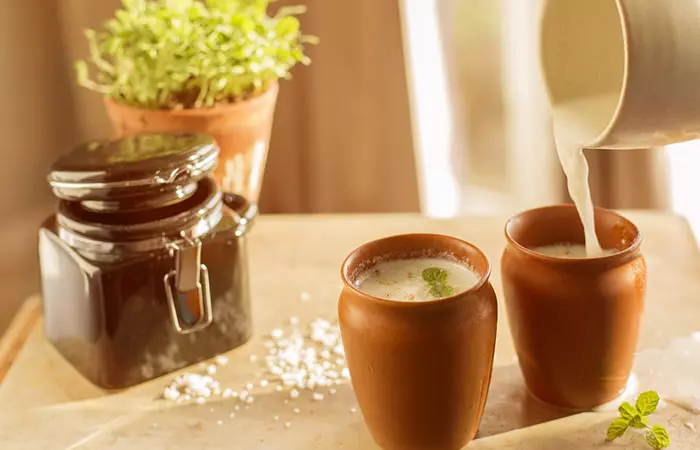
You Will Need
- 1 cup of buttermilk
- 1/2 teaspoon of dry ginger
What You Have To Do
- Mix dry ginger in a cup of buttermilk.
- Consume this refreshing drink.
How Often You Should Do This
You must drink buttermilk at least 3 to 4 times a day to combat dehydration.
How This Works
Buttermilk is a natural probiotic. It is rich in minerals such as potassium and magnesium that are often depleted when you sweat excessively and become dehydrated (5).
Note: Buttermilk is not only safe but also beneficial for your infant’s overall health.
3. Barley Water
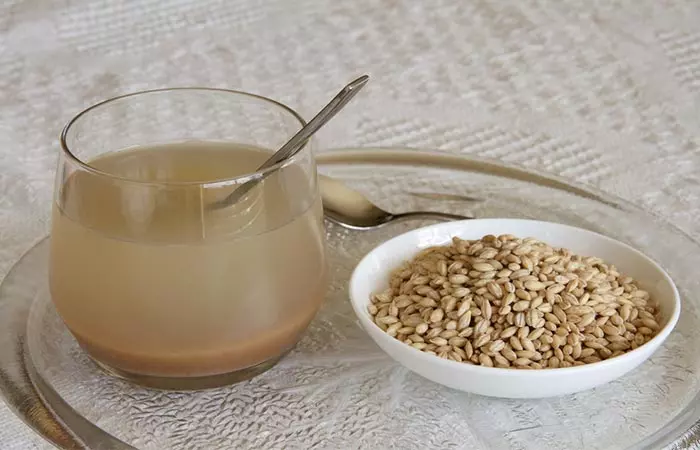
You Will Need
- 1 cup of barley
- 3 to 4 cups of water
- 1/2 lemon
- Honey
What You Have To Do
- Add a cup of barley to water and bring to a boil in a saucepan.
- Simmer for 40 to 50 minutes.
- Let the barley infusion cool.
- Strain the barley water and add lemon and honey for flavor.
- Drink this infusion at regular intervals throughout the day.
How Often You Should Do This
Do this 3 to 4 times a day.
How This Works
Barley water is an extremely healthy drink. It is loaded with many antioxidants, vitamins, and minerals that can help to restore the fluids lost by dehydration and keep you hydrated (6), (7).
Caution
Wait for your little one to turn at least 6 months before introducing barley to his/her diet.
4. Soups
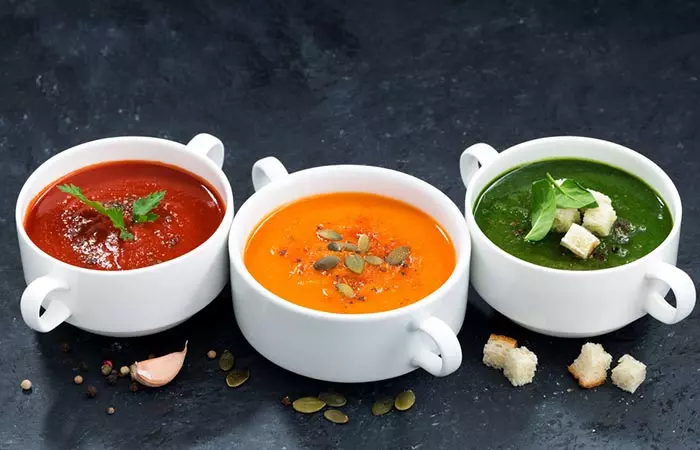
Soups are good sources of nutrients that can help in dealing with dehydration and its symptoms. The high content of minerals like potassium in soups makes them an ideal option to restore the lost nutrients in your body. For best results, consume soups before a rigorous workout session to help you stay hydrated. They can be used to treat dehydration in babies once they turn 6 months old.
5. Coconut Water
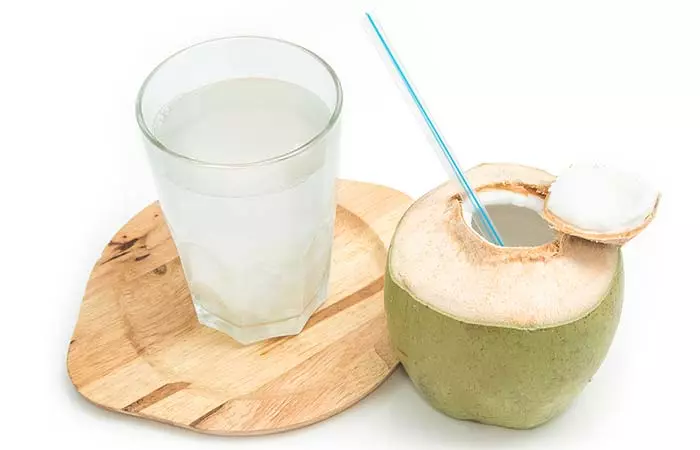
You Will Need
1 glass of young coconut water
What You Have To Do
Drink young coconut water throughout the day.
How Often You Should Do This
You must drink coconut water 4 to 5 times daily for best results.
How This Works
Coconut water is high in sodium and potassium, the levels of which are often depleted when you are dehydrated. This makes it one of the best options to treat dehydration naturally (8), (9).
Caution
Give coconut water to your baby only once he/she completes 6 months.
6. Essential Oils
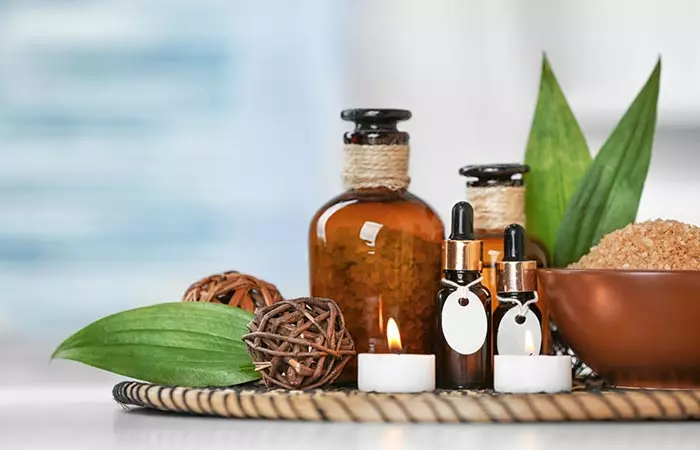
a. Lemon Essential Oil
You Will Need
- 1 to 2 drops of lemon essential oil
- 1 glass of water
What You Have To Do
- Add a few drops of lemon essential oil to a glass of water.
- Drink this solution.
How Often You Should Do This
Drink the lemon-flavored drink once daily.
How This Works
Lemon essential oil has antioxidant and cleansing properties and is great to keep you hydrated and healthy (10).
b. Wild Orange Essential Oil
You Will Need
- 1 to 2 drops of wild orange essential oil
- 1 glass of water
What You Have To Do
- Add a couple of drops of wild orange essential oil to a glass of water and mix well.
- Consume this flavored water throughout the day.
How Often You Should Do This
Drink this water at least once daily.
How This Works
Wild orange flavored water is a refreshing antioxidant drink that promotes overall health and enhances the functioning of your immune system. It is a flavorful and healthy way to treat dehydration as compared to unhealthy drinks with high sugar content (11).
c. Peppermint Essential Oil
You Will Need
- 2 drops of peppermint essential oil
- 1 glass of water
What You Have To Do
Add a few drops of peppermint essential oil to a glass of water and consume daily.
How Often You Should Do This
Do this 1 to 2 times daily.
How This Works
Peppermint oil contains potassium and magnesium – the reserves of which are low in dehydrated individuals. This peppermint oil infused water can help replenish the potassium and magnesium levels in your body and treat dehydration (12).
Caution
Infants and children should not be given essential oils internally until they are at least 6-10 years old.
7. Homemade ORS
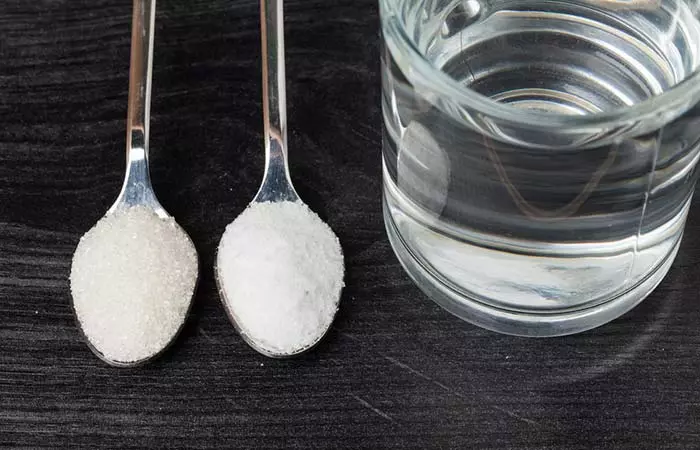
You Will Need
- 1/2 teaspoon of salt
- 6 teaspoons of sugar/brown sugar
- 4 cups of water
What You Have To Do
- Add the salt and sugar to water and mix well until they are completely dissolved.
- Drink this solution until the symptoms abate.
How Often You Should Do This
Do this multiple times until you have consumed at least 3 liters of this solution in a day.
How This Works
ORS stands for Oral Rehydration Solution. The name itself gives away the use of this remedy, i.e., to treat dehydration. Consuming ORS is one of the best ways to replace the lost fluids in your body. This is because the glucose content of sugar used in ORS helps in increased uptake of sodium and water that are lost due to dehydration (13), (14).
Note: ORS is one of the safest options to treat dehydration in infants. However, it is best to consult a doctor before doing so, especially if your infant is less than 6 months old.
8. Pickle Juice
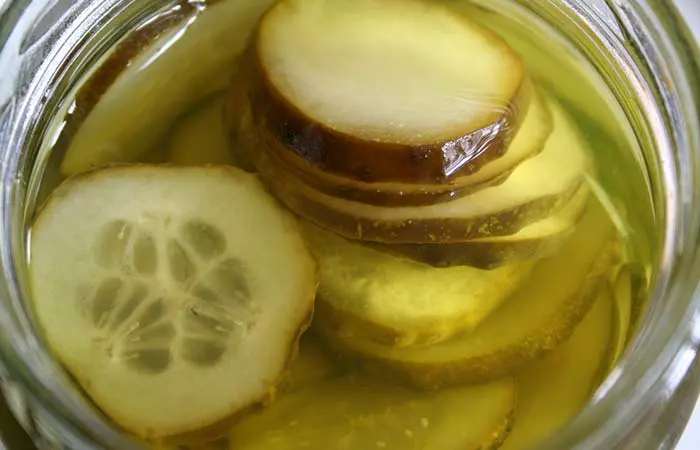
You Will Need
1/3 cup of pickle juice
What You Have To Do
Drink pickle juice before or after an intense workout.
How Often You Should Do This
Do this once a day.
How This Works
Your body tends to lose a lot of potassium and sodium when you sweat excessively, and this leads to dehydration. A study revealed that men who were dehydrated found immediate relief from muscle cramps after consuming pickle juice. Pickle juice is high in sodium and is also known to have some amount of potassium in it. Thus, it is one of the best remedies to treat dehydration as it restores the electrolyte balance in your body (15).
Caution
Do not give pickle juice to your little one.
9. Cranberry Juice
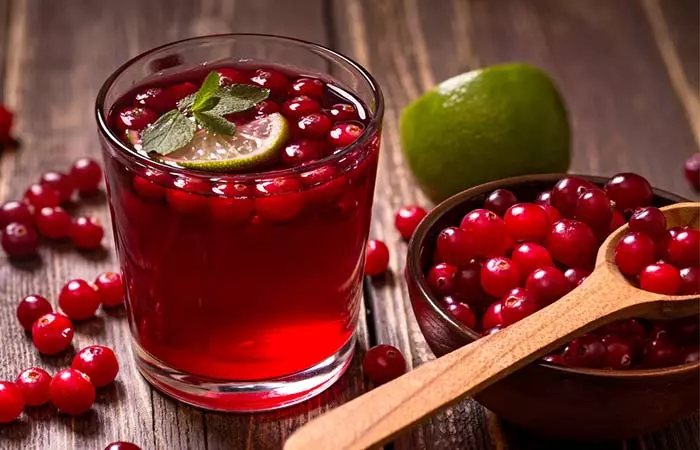
You Will Need
2 cups of cranberry juice
What You Have To Do
Drink at least 2 glasses of unsweetened cranberry juice daily.
How Often You Should Do This
Drink this juice twice daily.
How This Works
Cranberry juice has high water content and is one of the best ways to treat dehydration naturally. It also contains essential sugars and salts that are often lost when you are dehydrated (16).
10. Apple Juice
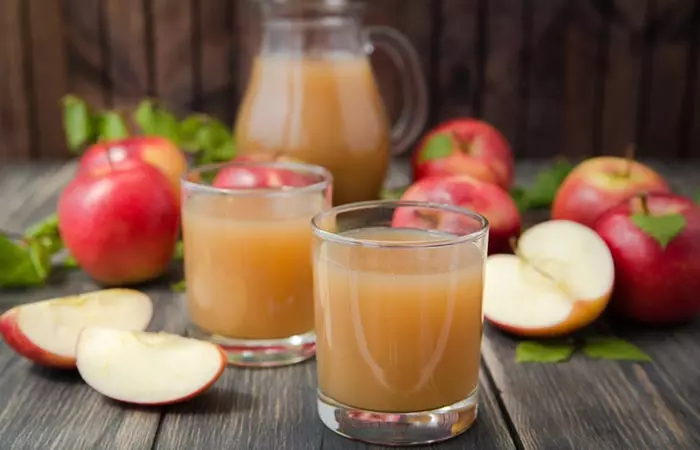
You Will Need
- 1 apple
- 1/2 glass of water
What You Have To Do
- Blend an apple with half a glass of water.
- Drink this juice.
How Often You Should Do This
You can drink this juice twice daily.
How This Works
Apples are a rich source of magnesium. They also contain trace amounts of potassium and can, therefore, help in treating dehydration by restoring the lost minerals and electrolytes in your body. According to a study conducted in 2016, diluted apple juice is a more effective option as compared to electrolyte drinks to treat dehydration in children (17), (18).
Caution
You need to wait for your babies to complete at least 6 months before introducing fruit juices and solid foods in their diet.
11. Orange Juice
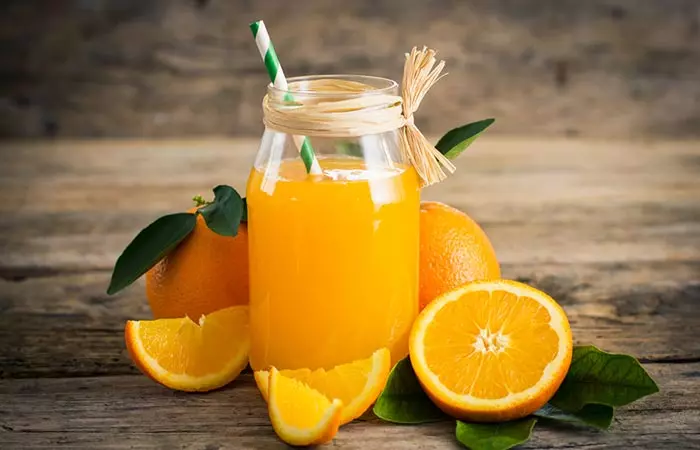
You Will Need
1 to 2 glasses of unsweetened orange juice
What You Have To Do
Drink a glass of unsweetened orange juice before or after a strenuous workout.
How Often You Should Do This
You must drink this juice once or twice a day.
How This Works
Oranges are rich in a lot of vitamins and minerals. They also have electrolytes such as potassium and little amounts of magnesium present in them. Oranges, therefore, have the potential to keep dehydration at bay by maintaining the electrolyte balance in your body (19).
Caution
Children below 6 years of age should consume just half a cup of orange juice in a day.
12. Lemon Water
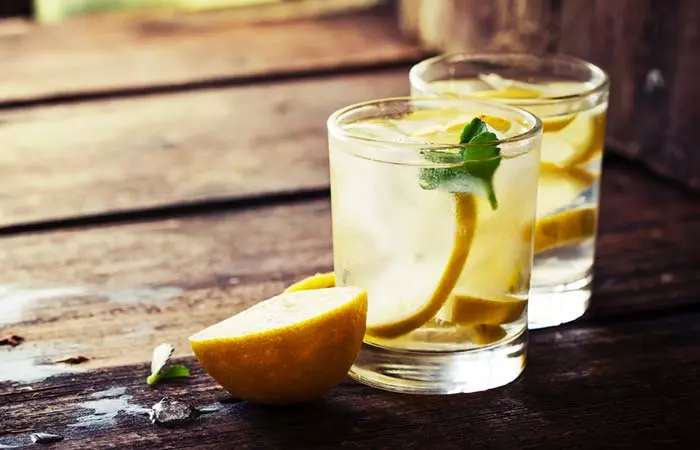
You Will Need
- 1/2 lemon
- 1 glass of water
- Honey (optional)
What You Have To Do
- Squeeze half a lemon into a glass of water.
- Add honey for flavor and consume this drink daily.
How Often You Should Do This
Drink lemon water two to three times a day.
How This Works
Lemon water not only refreshes you but also helps you overcome dehydration by restoring the levels of potassium, sodium, and magnesium in your body (20). Additionally, it acts as a detox water for clear skin, aiding in the removal of toxins and promoting a healthy complexion.
Caution
Wait till your baby is 6 months old before introducing lemon to his/her diet.
13. Salt
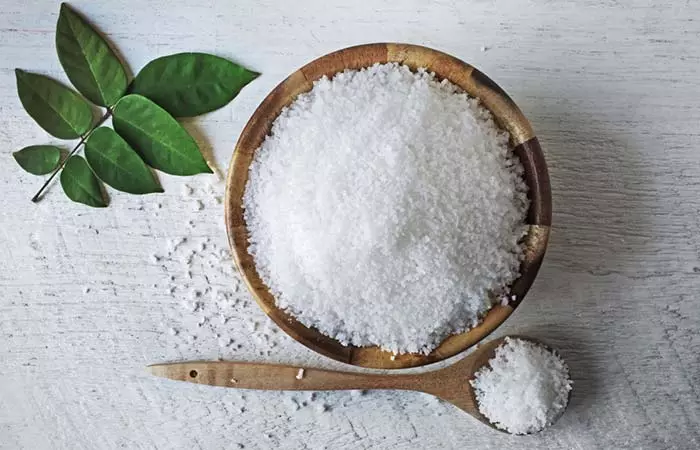
When you are dehydrated, your body ends up losing many significant minerals and electrolytes such as magnesium, potassium, and sodium. In such a situation, it is recommended to increase the intake of these to balance their amount in your body. Your body has the natural ability to maintain the balance of sodium and water. When you are dehydrated, this balance is disturbed. Thus, increasing the amount of salt in your diet via sports drinks and foods rich in sodium can help your body regain the sodium-water balance. This, in turn, can help combat dehydration (21), (22).
14. Yogurt
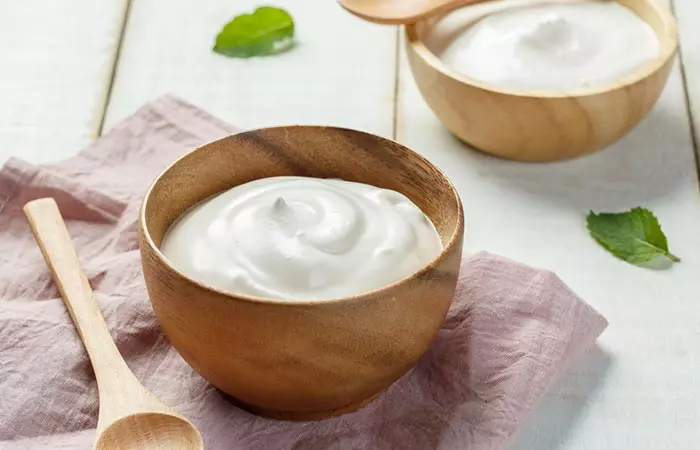
You Will Need
- 1 cup of yogurt
- A pinch of salt
What You Have To Do
- Add a pinch of salt to a cup of yogurt and mix well.
- Consume this daily.
How Often You Should Do This
Do this 1 to 2 times daily.
How This Works
Yogurt is a rich source of electrolytes and can hence combat dehydration by restoring the lost electrolytes in your body (23).
Caution
You can include yogurt in your infant’s diet if he/she is older than 6 months.
 Trivia
Trivia15. Epsom Salt Bath
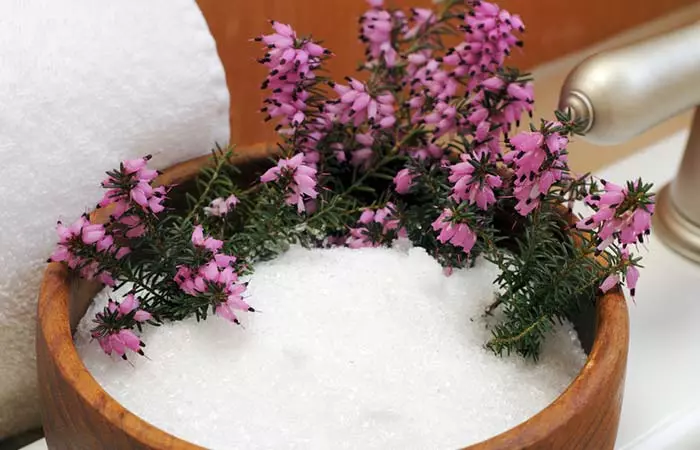
You Will Need
- 1 cup of Epsom salt
- 1 bucket of water
What You Have To Do
- Add a cup of Epsom salt to your bath water.
- Soak and relax in the bath for 15 to 20 minutes.
How Often You Should Do This
You can do this 2 to 3 times a week.
How This Works
The magnesium in Epsom salt can help to combat dehydration and its symptoms when absorbed by your body (24).
Caution
Although an Epsom salt bath is relatively safe for children, it may cause issues if the bath water is swallowed. Infants below the age of 1 should be kept away from this treatment.
Note: While the above home remedies may be helpful in treating mild-medium cases of dehydration, they should never be used in place of professional treatment, especially when the condition is severe. Get medical help right away if you experience symptoms like intense thirst, dizziness, confusion, a fast heartbeat, or unconsciousness.
Although these remedies can help you in your fight against dehydration, following a few preventive tips and making a couple of lifestyle changes will prove beneficial in treating this condition.
Preventive Tips For Dehydration
- Include plenty of water and hydrating juices and thirst quenchers like watermelon and strawberry in your diet, especially before and after a rigorous activity.
- Use an electrolyte sports drink if you are planning to workout or exercise for more than an hour.
- Avoid alcohol consumption as it increases dehydration.
- Quit smoking as it can cause dehydration in the long run.
- Wear lightweight and light-colored clothes if you are working out or exercising outdoors.
- Follow a healthy diet with high water content foods such as cucumbers, yogurt, papaya, and green salads as they help in dehydration prevention.
collected from 2015-2018 indicates that the average daily intake of plain water was 23 ounces for US children and adolescents (2-19 years) and 44 ounces for US adults. In the children to adolescent survey, lower plain water intake was noticed among younger ages, non-Hispanic Black or Hispanic ethnicity, lower-income households, and underweight or normal weight children. In the adult survey, older age, non-Hispanic Black ethnicity, lower income, lower education levels, and absence of obesity were linked to lower plain water intake.
Infographic: Common Home Remedies To Treat Dehydration
Dehydration affects the functioning of the body. However, you can treat it before it gets serious. While we have shared in this article several home remedies to treat dehydration, we want to stress further on the most common and effective ways of treatment. Check out the following infographic to learn further. Illustration: StyleCraze Design Team
Dehydration can disturb the electrolyte balance of the body and can even be life-threatening if not taken care of immediately. While drinking enough water is the fundamental way to replenish your body, eating bananas and drinking buttermilk, barley water, coconut water, lemon juice, and diluted peppermint essential oil are recommended to get enough electrolytes like sodium, potassium, and magnesium. Moreover, avoid alcohol intake and quit smoking as they can also cause dehydration. While these remedies combat mild and moderate dehydration effectively, serious cases need immediate medical attention. So, consult a doctor immediately if your condition is worsening.
Frequently Asked Questions
What complications can arise from untreated dehydration?
It’s crucial to recognize and address dehydration symptoms as soon as possible, as failing to do so can lead to severe complications, including kidney failure, seizures, or even death (25).
Is milk good for dehydration?
Yes, milk is a very good option to rehydrate you. In fact, a study concluded that milk is better than water and electrolyte drinks to combat dehydration due to its high content of nutrients and electrolytes. But if you are worried about those extra calories, better stick to water.
What are the best drinks to treat dehydration besides water?
Besides water, fruit juices such as watermelon, strawberry, and orange, whole and skimmed milk, sports drinks, as well as coconut water can help in keeping you hydrated.
Which is the best electrolyte drink that can prevent dehydration?
Oral rehydration solution (ORS) is one of the best electrolyte drinks to prevent dehydration in adults and infants alike.
What vitamin helps treat dehydration?
Vitamin C may help with dehydration. However, while some proponents of vitamin C hydration therapy claim that it can help improve symptoms of dehydration and hydrate the body effectively, there is a lack of scientific research to validate this claim.
When should you go to the ER to treat dehydration?
Dehydration can be fatal unless treated on time. So, if you are experiencing an inability to urinate, delusion, confusion, dizziness, extreme heat exhaustion, or irritability, you should visit the ER for emergency medical services.
Does chugging water hydrate you?
Chugging water is no more effective for dehydration than sipping water slowly till you feel your symptoms have improved.
Is Gatorade good for dehydration?
Yes, Gatorade is formulated with electrolytes that can effectively help relieve the symptoms of dehydration.
Illustration: Simple And Effective Home Remedies To Treat Dehydration
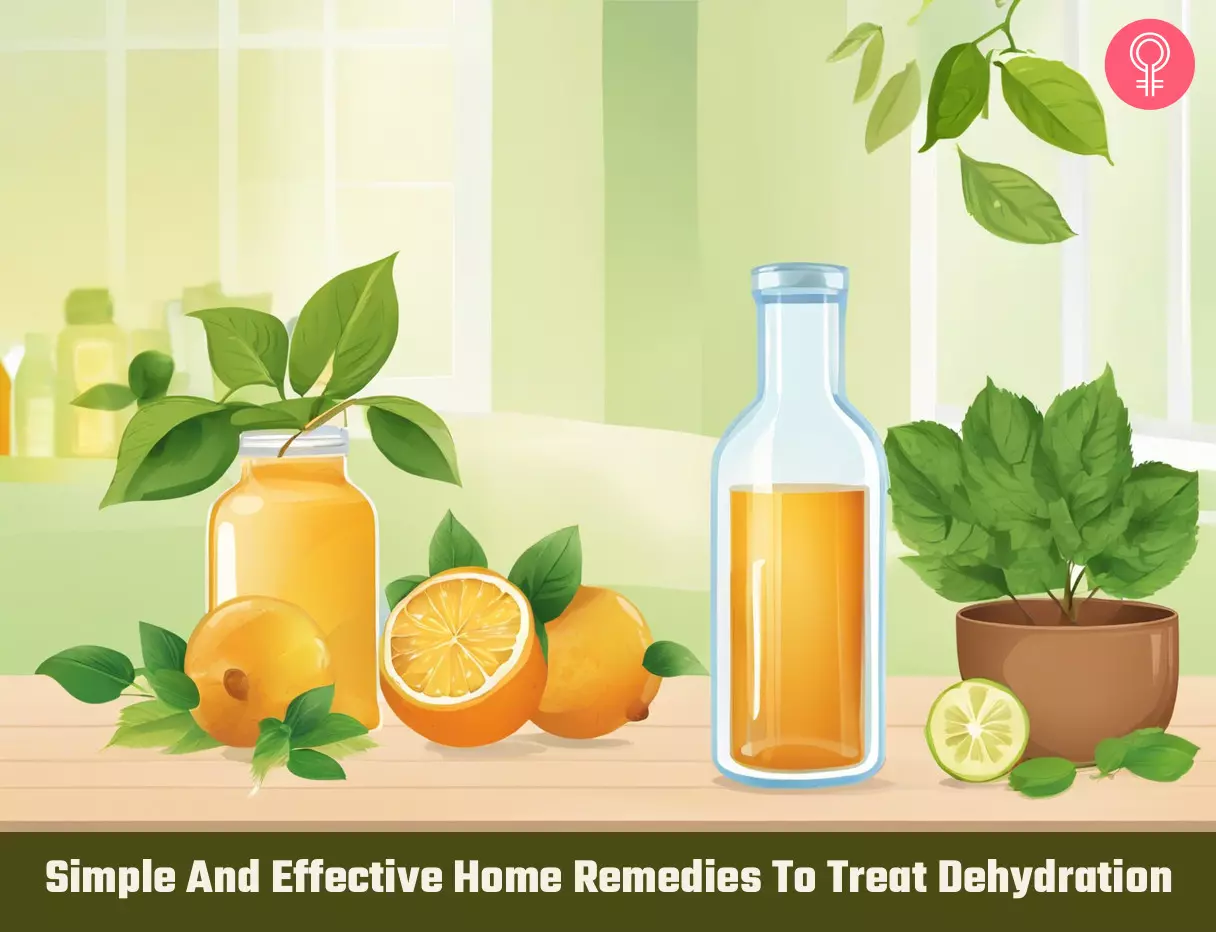
Image: Stable Diffusion/StyleCraze Design Team
Simple techniques will help you treat dehydration at home. Check out this video for advice on how to quickly and properly rehydrate and replace electrolytes.
Personal Experience: Source
StyleCraze's articles are interwoven with authentic personal narratives that provide depth and resonance to our content. Below are the sources of the personal accounts referenced in this article.
i. Dehydration Experience: Habits to Breakhttps://medium.com/service-learning-class-journals/dehydration-experience-habits-to-break-b98506a6901b
References
Articles on StyleCraze are backed by verified information from peer-reviewed and academic research papers, reputed organizations, research institutions, and medical associations to ensure accuracy and relevance. Read our editorial policy to learn more.
- Understanding clinical dehydration and its treatment
https://pubmed.ncbi.nlm.nih.gov/18519109/ - Clinical signs of dehydration in children
https://www.ncbi.nlm.nih.gov/pmc/articles/PMC2660108/ - Water, hydration and health
https://www.ncbi.nlm.nih.gov/pmc/articles/PMC2908954/ - Guideline: Potassium Intake for Adults and Children.
https://www.ncbi.nlm.nih.gov/books/NBK132468/ - Probiotics and medical nutrition therapy
https://www.ncbi.nlm.nih.gov/pmc/articles/PMC1482314/ - A fermented barley and soybean formula enhances skin hydration
https://www.ncbi.nlm.nih.gov/pmc/articles/PMC4566027/ - An investigation of the mineral content of barley grains and seedlings
https://www.ncbi.nlm.nih.gov/pmc/articles/PMC1054434/ - Coconut water as a rehydration fluid
https://pubmed.ncbi.nlm.nih.gov/290921/ - Rehydration after exercise with fresh young coconut water, carbohydrate-electrolyte beverage and plain water
https://pubmed.ncbi.nlm.nih.gov/12056182/ - Antioxidant activity of Citrus limon essential oil in mouse hippocampus
https://pubmed.ncbi.nlm.nih.gov/21639684/ - Chemical profile, antibacterial and antioxidant activity of algerian citrus essential oils and their application in sardina pilchardus
https://www.ncbi.nlm.nih.gov/pmc/articles/PMC5302327/
- Instant effects of peppermint essential oil on the physiological parameters and exercise performance
https://www.ncbi.nlm.nih.gov/pmc/articles/PMC4103722/ - The effect of oral rehydration solution and recommended home fluids on diarrhoea mortality
https://pubmed.ncbi.nlm.nih.gov/20348131/ - Oral rehydration therapy
https://pubmed.ncbi.nlm.nih.gov/8855579/ - Electrolyte and plasma changes after ingestion of pickle juice, water, and a common carbohydrate-electrolyte solution
https://www.ncbi.nlm.nih.gov/pmc/articles/PMC2742453/ - 15. Herbal Medicine: Biomolecular and Clinical Aspects. 2nd edition.
https://www.ncbi.nlm.nih.gov/books/NBK92762/ - Effect of Dilute Apple Juice and Preferred Fluids vs Electrolyte Maintenance Solution on Treatment Failure Among Children With Mild Gastroenteritis: A Randomized Clinical Trial
https://pubmed.ncbi.nlm.nih.gov/27131100/ - A Comprehensive Review of Apples and Apple Components and Their Relationship to Human Health
https://www.ncbi.nlm.nih.gov/pmc/articles/PMC3183591/ - Mineral content of the pulp and peel of various citrus fruit cultivars
https://www.ncbi.nlm.nih.gov/pmc/articles/PMC6944645/ - Citrus fruits as a treasure trove of active natural metabolites that potentially provide benefits for human health
https://www.ncbi.nlm.nih.gov/pmc/articles/PMC4690266/ - Know the common substance: table salt (sodium chloride, nacl)
https://www.ncbi.nlm.nih.gov/pmc/articles/PMC4170357/ - The major electrolytes: sodium, potassium, and chloride
https://pubmed.ncbi.nlm.nih.gov/7965369/ - Evaluation of yogurt effect on acute diarrhea in 6-24-month-old hospitalized infants
https://pubmed.ncbi.nlm.nih.gov/16848109/ - Bathing in a magnesium-rich Dead Sea salt solution improves skin barrier function, enhances skin hydration, and reduces inflammation in atopic dry skin
https://pubmed.ncbi.nlm.nih.gov/15689218/ - Dehydration
https://medlineplus.gov/ency/article/000982.htm
Read full bio of Dr. Bindiya
Read full bio of Shaheen Naser
Read full bio of Ravi Teja Tadimalla
Read full bio of Dipti Sharma






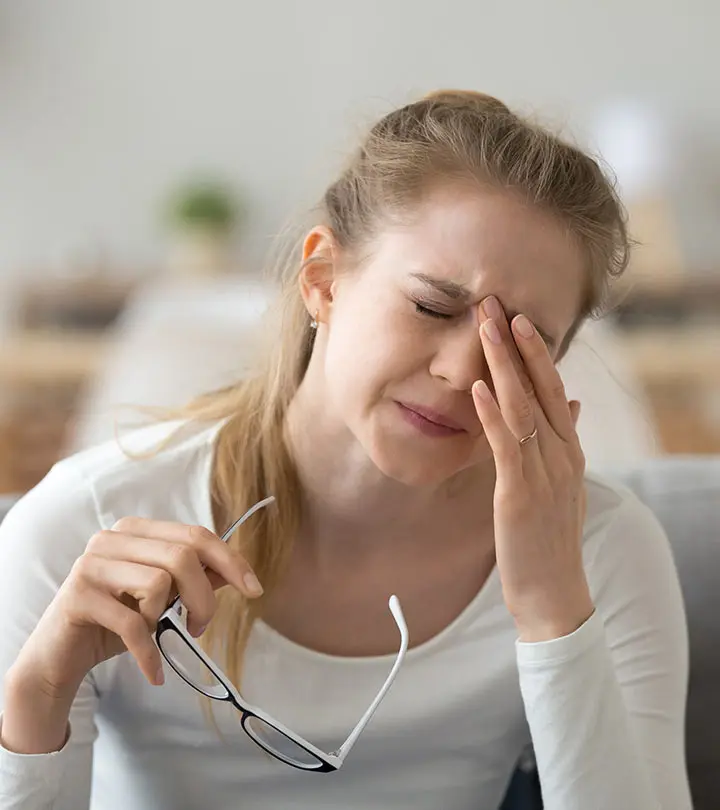


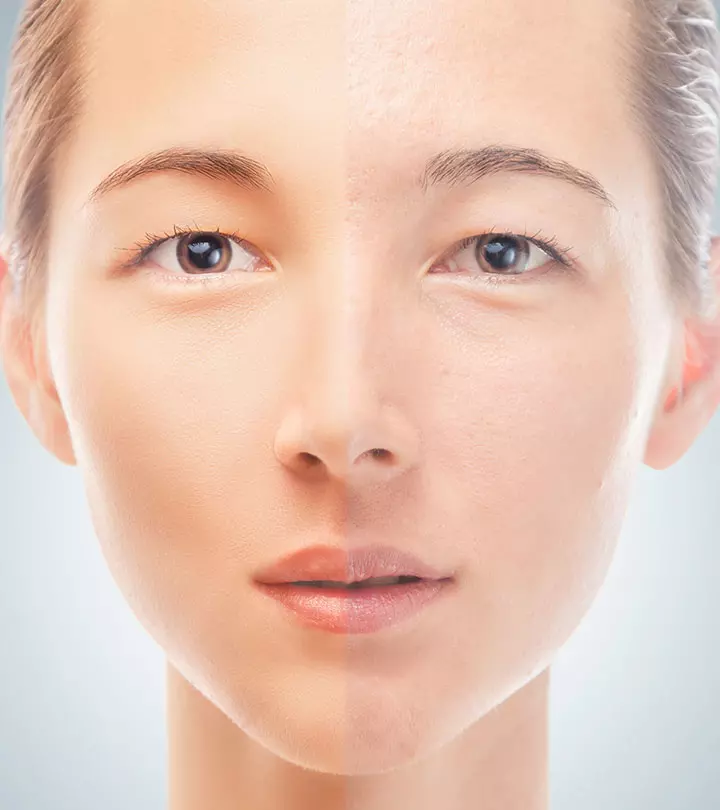
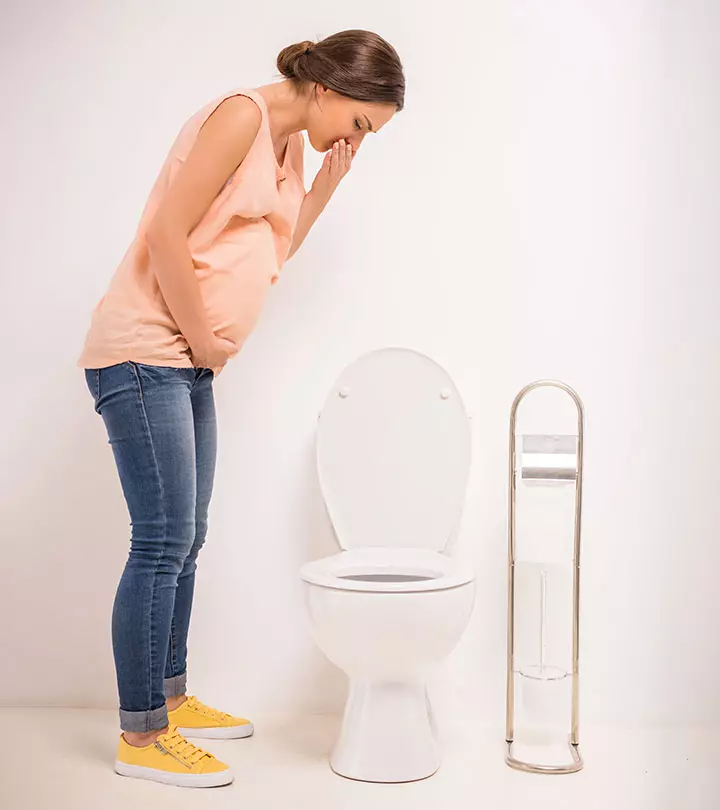


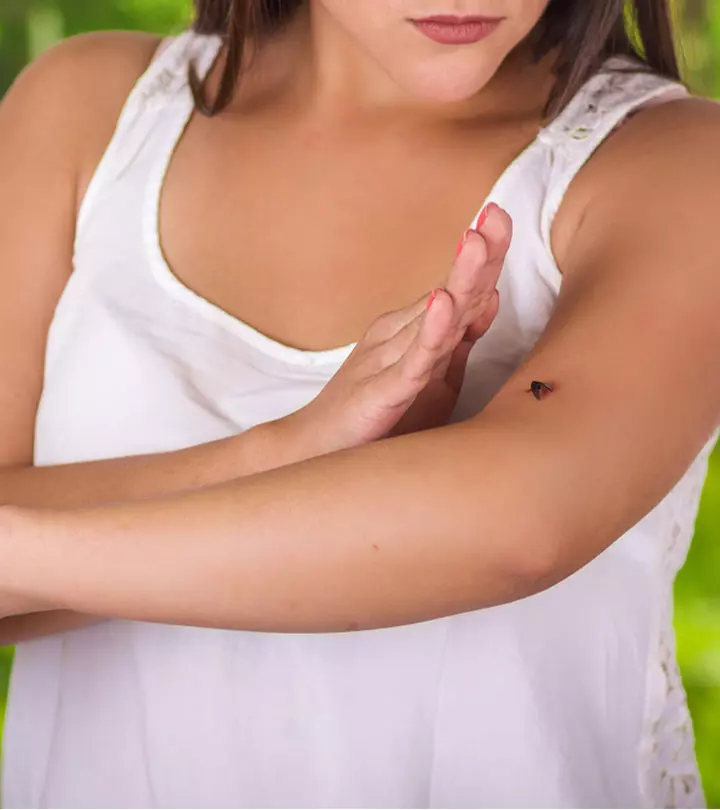
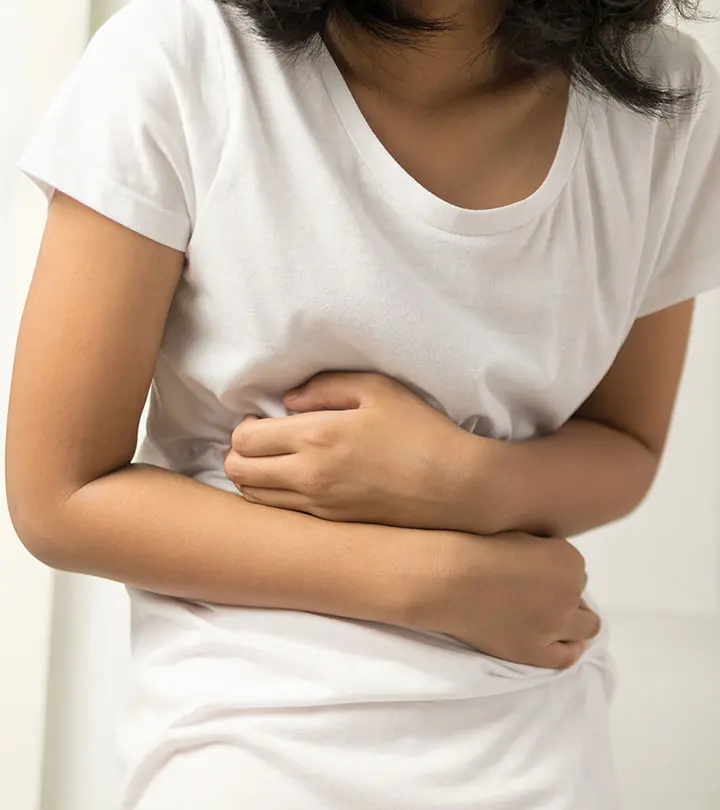



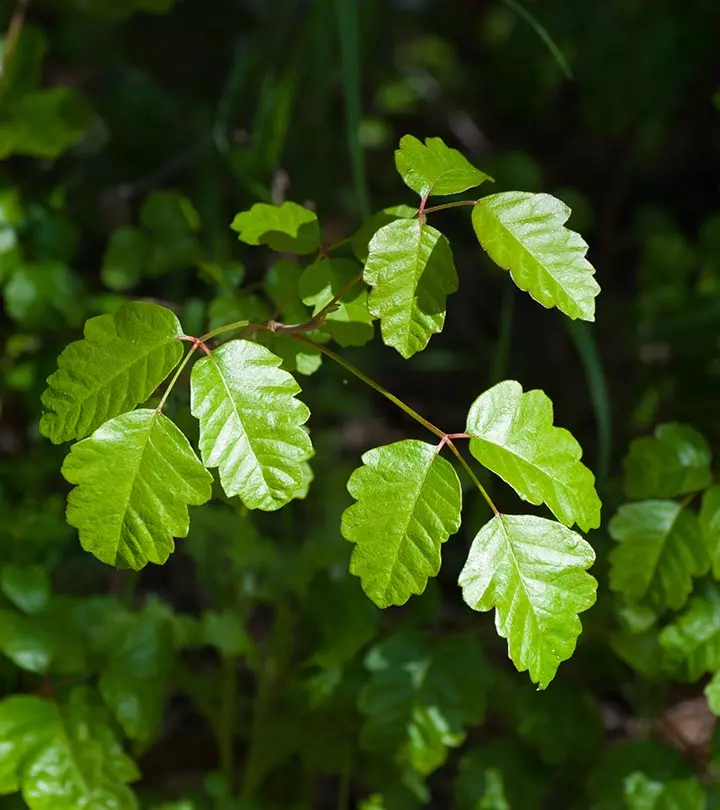



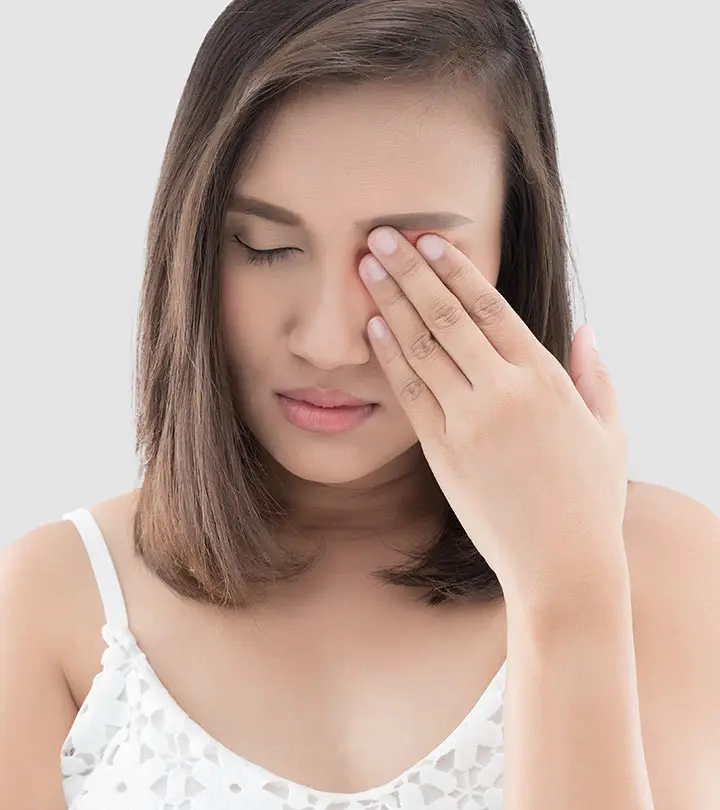
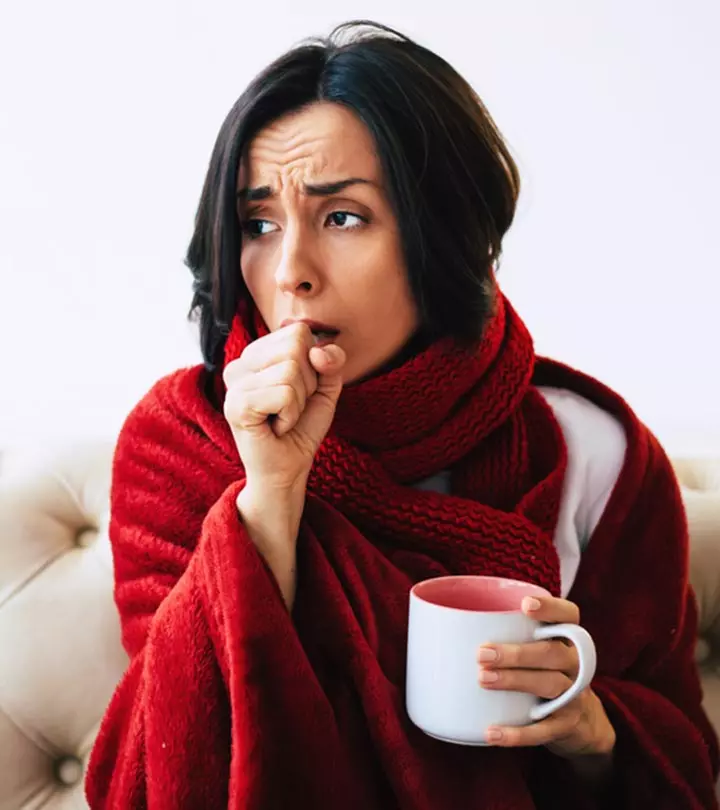

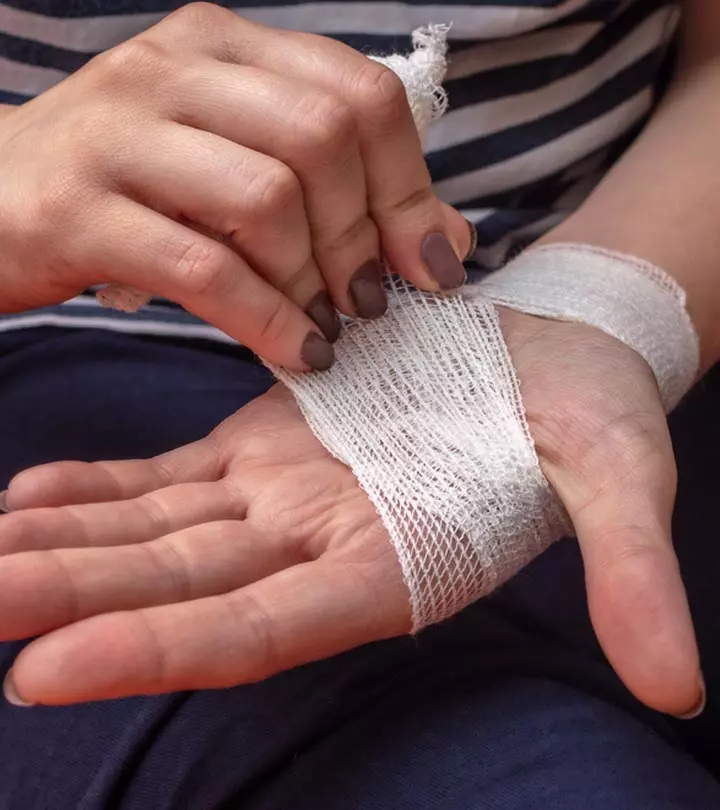

Community Experiences
Join the conversation and become a part of our empowering community! Share your stories, experiences, and insights to connect with other beauty, lifestyle, and health enthusiasts.